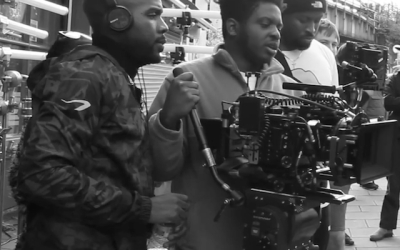Joe Sugg’s rise from a small-town roof thatching apprentice to a digital content powerhouse encapsulates the evolution of online media. Known for his diverse content on YouTube, Joe is navigating the complexities of digital business, transforming his online presence into a new media venture. In a recent interview for TellyCast, Joe discussed his journey, his approach to content creation, and his ambitions with his production company, Final Straw Productions. Here are some key takeaways.
The Digital Content Pioneer
Joe Sugg’s entrance into the digital world was driven by a combination of creativity and opportunity. Growing up with his sister, Zoe Sugg (Zoella), Joe witnessed firsthand the potential of social media as Zoe’s blog and YouTube channel gained popularity. Encouraged by Zoe’s success, Joe launched his own YouTube channel, quickly discovering the platform’s potential.
Joe’s content strategy was rooted in relatability and experimentation. Joe built an audience by creating content that resonated with viewers and was quick to recognise the importance of diversification. By branching into different genres like gaming, cooking, and vlogging, Joe expanded his reach, tapping into multiple audience segments, steadily building a significant fanbase that stands at over 7 million subscribers on YouTube alone. He edits his own content.
Adapting to a Saturated Market
As YouTube evolved, so did Joe’s approach to content creation. He acknowledged that the platform has become increasingly saturated, making it more challenging for new creators to gain visibility. However, Joe’s success can be attributed to his understanding of the digital landscape and his ability to adapt.
One of Joe’s key business strategies has been to maintain authenticity in his content. Rather than chasing trends or focusing solely on algorithms, Joe prioritises genuine engagement with his audience. This approach has not only kept his fanbase loyal but has also differentiated him in a crowded market. Joe’s belief in the long-term value of authenticity over short-term gains has proven to be a successful approach.
The Business of Content Creation
Joe’s digital success opened doors to mainstream media, but his business acumen ensured that his transition was more than just a career shift. His participation in “Strictly Come Dancing” and subsequent ventures into television highlighted the importance of cross-platform presence for digital creators.
Recognising the potential of content production, Joe founded Final Straw Productions. The company is designed to develop formats that can succeed both online and on television. This strategic move allows Joe to leverage his digital expertise in a broader media landscape, positioning Final Straw Productions as a hybrid content creator that bridges the gap between traditional and digital media.
Innovating in the Digital Space
Final Straw Productions reflects Joe’s vision of the future of entertainment—one where digital and traditional media converge. The company’s business model – a partnership with BBC Studios – focuses on testing new content formats on digital platforms before scaling them for television. This approach minimises risk and maximises the potential for success, as ideas are refined based on audience feedback and digital performance metrics.
The Future of Digital Media
Looking forward, Joe is poised to continue his influence in digital. His focus on creating content that appeals to both online and traditional media and his ability to innovate, adapt, and maintain authenticity will be crucial as he navigates the digital media.
Key Takeaways:
•Digital Diversification: Joe’s success lies in his ability to diversify his content across multiple genres, expanding his audience and increasing brand value.
•Authenticity as a Strategy: Joe’s business model prioritises genuine engagement over algorithm-chasing, fostering a loyal fanbase in a saturated market.
•Cross-Platform Expansion: Final Straw Productions is Joe’s vehicle for creating content that works both online and on television, blending digital expertise with traditional media strategies.
•Innovation in Content Testing: The company’s strategy of testing formats on digital platforms before scaling them for TV minimises risk and maximises potential success.





